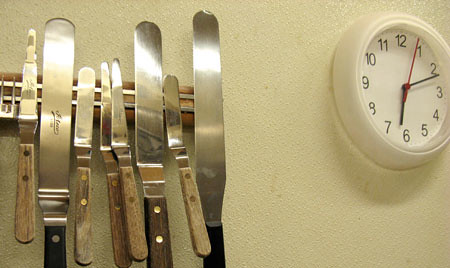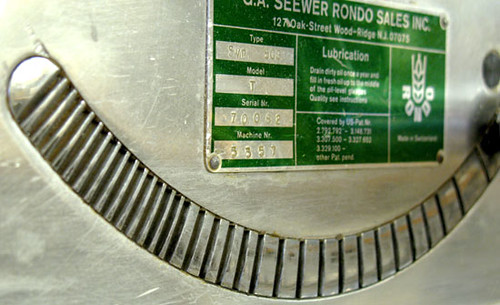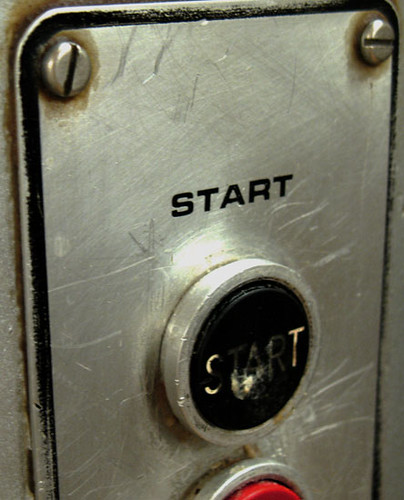 I remember retail.
I remember retail.I remember for years and years I would walk in to work, punch in, check the schedule, and more often than not, meander over to get a cup of coffee. Sure, there was a chance that I would be on register first thing, but I would still have time to get that beverage, say hello. At various points in my career, thanks to a certain kind of boss, my day could even start with a meeting; arrive at work to be forced to sit down, chat and have a nice drink for 20 minutes? Sybaritic luxury!
Now, if I'm not starting work at least a couple minutes early, I feel like I'm behind.
Cooks work in a cascade. The time one thing can take directly effects when you get to the next thing, and when hell breaks loose? Well, we all understand trickle down theory. One shift can teach you that in just about any cooking environment. For example, if we need pies for Saturday, then on Tuesday I'm prepping dough because Wednesday I mix, Thursday I sheet out and cut, Friday the pies get made, and Saturday we bake. Yes, you could shave a day or maybe (maybe!) two off that time but for the best pies, that's our schedule. Five days. Sure, the actual time involved on Tuesday is minutes, nothing compared to Friday's time - and notice I didn't mention the fillings get made somewhere in there, too. I had just better notice on Tuesday we need pies on Saturday.
I work two cascades, my daily one for the laminated doughs, and the one for multiple day projects. The multiple days work happens between the daily, so I'll do my first turns for the croissant, and while that rests I'll do the pie dough, or cut puff pastry, or pull out the product for tomorrow, then I'll go back and do my next croissant turn, and so on. On a good day, I'll have completed my first turns as well as a few of my multiple day projects and be into my last turn in two hours.
Most days are pretty good. I look at the clock constantly, checking my progress. Each time I look, I have no idea what the time actually means. I know how many minutes a set of turns should take (Six, but if I get it down lower I am doing great!). I follow the patterns, thinking about where I can shave minutes, because that will give me just a little more time in case something comes up, a few more minutes just in case. The idea that a clock can tell me where I am in my workday just doesn't follow. Then, I pause, breathe, look at the clock and think, "Huh. That time already? Two hours? How did that happen?"
I know how it happened, of course. I was watching the clock the whole time.





